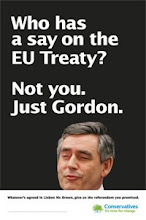A fascinating article https://www.opendemocracy.net/uk/peter-oborne/inconvenient-book-miles-goslett-david-kelly-aaronovitch that doesn't help me to believe the official version re the death of David Kelly.
Here's an extract but do read the whole piece:
'I was a lobby journalist at the time and we took for granted the official account that Kelly killed himself by slashing the ulnar artery of his left wrist and swallowing a large number of Comproxamol painkiller tablets.
This is the territory that Goslett makes his own. He notes first of all the crucial fact that the government cancelled the coroner's inquest. This remains a strange decision. Both the Hutton Inquiry and the inquest could have gone on simultaneously. Evidence presented to a coroner is given under oath. Not so with the Hutton Inquiry, which was established on a non-statutory basis, meaning it had no legal powers and that witnesses could mislead Hutton without committing perjury.
This may help to explain why crucial witnesses weren't called and relevant information wasn't brought to light. The scientist's former colleague Mai Pedersen, who could have told Lord Hutton that Dr Kelly had damaged his right arm and was incapable of cutting steak, let alone cutting his left wrist, wasn't called.
Lord Hutton did not call John and Pamela Dabbs, friends of the Kellys who were some of the last people to see him alive in the days before his death.
Neither did he call the so-called "boat people", who were moored on the river next to where Dr Kelly was found the night that he died – the closest witnesses to where Dr Kelly was found.
He didn't call the police officer in charge of the investigation into Dr Kelly's disappearance, Chief Inspector Alan Young. He did not call Sergeant Simon Morris, the police officer who led the initial hunt for Dr Kelly. Hutton failed to discover that the knife Kelly supposedly used to cut his wrist had no fingerprints on it. Nor did some of the other items found beside the body including a water bottle, some empty pills packets, a watch, a pair of glasses and a mobile phone. All despite the fact, says Goslett, that Kelly was not wearing gloves that day and none were found with his body.
Neither did Lord Hutton call Judith Miller, an American journalist and acquaintance of Dr Kelly's to whom he wrote on the day of his death that there were 'many dark actors playing games.'
Nor did he call the man who briefed a team of volunteer searchers; the police photographer who could have shed invaluable insight into the position of Dr Kelly's body; 10 people who watched the autopsy; and a forensic biologist who went to the scene of the body. In the light of all this he makes the case there should be a full coroner's inquest to find out the truth of what happened. In the light of a mountain of evidence showing that Lord Hutton was negligent, it's impossible to argue with that.
Pointing out all these (and many other) failures and inconsistencies seems to me to be a valuable piece of investigative journalism... '










No comments:
Post a Comment